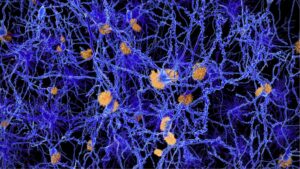Understanding Amyloid PET/CT: A New Tool for Diagnosing Memory Loss

If you or a loved one has been experiencing memory loss, confusion, or cognitive changes, your doctor may recommend an Amyloid PET/CT scan. This advanced imaging study, now offered at TRA Medical Imaging, is designed to help doctors evaluate changes in the brain that may be linked to Alzheimer’s disease and other types of dementia.
Here’s what you need to know about this important test.
What Is an Amyloid PET/CT Scan?
 An Amyloid PET/CT scan is a non-invasive imaging study that allows doctors to see amyloid plaques in the brain. Amyloid plaques are abnormal protein deposits that are commonly found in people with Alzheimer’s disease. By identifying these plaques, doctors can better understand whether Alzheimer’s or another condition might be causing symptoms like memory loss or confusion.
An Amyloid PET/CT scan is a non-invasive imaging study that allows doctors to see amyloid plaques in the brain. Amyloid plaques are abnormal protein deposits that are commonly found in people with Alzheimer’s disease. By identifying these plaques, doctors can better understand whether Alzheimer’s or another condition might be causing symptoms like memory loss or confusion.
While the presence of amyloid plaques doesn’t automatically mean someone has Alzheimer’s, the scan provides valuable insight into what’s going on in the brain—and can help guide treatment decisions.
Who Should Have This Scan?
Amyloid PET/CT scans are typically recommended for individuals who:
- Are showing signs of mild cognitive impairment (MCI) or early dementia
- Have had memory or thinking problems that are difficult to diagnose
- Need more information to determine whether Alzheimer’s disease may be present
- Are being considered for participation in clinical trials for dementia or Alzheimer’s treatments
This test is ordered by a neurologist, geriatric specialist, or primary care provider—often as part of a broader evaluation for memory or cognitive changes.
What to Expect During the Exam
The exam itself is safe, simple, and painless. Here’s what you can expect:
- Before the Exam
- You’ll receive instructions ahead of time, but no major preparation is needed.
- When you arrive, a small amount of a radioactive tracer will be injected into your arm. This tracer binds to amyloid plaques in the brain.
- During the Exam
 After the injection, there will be a short waiting period to allow the tracer to travel to the brain.
After the injection, there will be a short waiting period to allow the tracer to travel to the brain.- You’ll then lie comfortably on the scanner bed while the PET/CT machine takes images of your brain. The process usually takes about 20–30 minutes.
- The scan is completely non-invasive—you won’t feel anything during imaging.
- After the Exam
- You can return to your normal activities right away.
- The scan images will be reviewed by a board-certified radiologist and sent to your doctor, who will discuss the results with you at a follow-up appointment.
What Are the Benefits of Amyloid PET/CT?
- Earlier and more accurate diagnosis
The scan helps your doctor distinguish between Alzheimer’s and other causes of memory issues. - Personalized care
With clearer information, your healthcare provider can create a more targeted treatment plan based on your needs. - Peace of mind
Whether the scan shows the presence of amyloid or not, it offers answers that can help patients and families plan for the future. - Access to treatment and clinical trials
In some cases, having a clear diagnosis may allow you to explore new therapies or participate in research studies.
Why Choose TRA Medical Imaging?
At TRA Medical Imaging, we’re proud to offer Amyloid PET/CT scans using advanced imaging technology and a team of compassionate, highly trained professionals. We understand how overwhelming memory concerns can be, and we’re here to make your experience as smooth and supportive as possible.
If you think you or someone you love may benefit from this exam, talk to your healthcare provider about a referral.
Still Have Questions?
We’re here to help. If you have more questions about the Amyloid PET/CT scan, feel free to contact us or speak with your doctor to learn more about how this test can provide clarity and support your next steps.
PET/CT Specialty Coordinators: 253-680-3400
